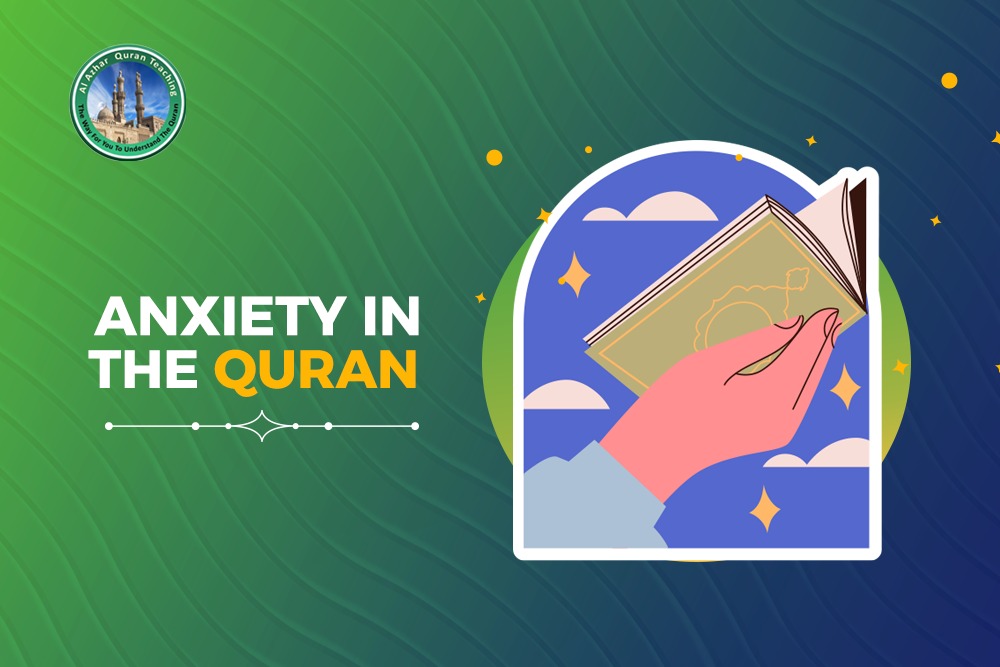7 Essential Insights on Anxiety in the Quran
Anxiety, a common human experience characterized by feelings of worry, nervousness, or unease, is a topic of considerable discussion within Islamic teachings and the Quran. This article delves into how anxiety is addressed in the Quran and offers Islamic perspectives for managing and understanding it.
SEO Meta Description: Discover the profound insights on managing anxiety through the teachings and verses of the Quran. Learn how Islam approaches mental well-being and finds solace in spiritual guidance.
Introduction to Anxiety
Anxiety, a condition that affects countless individuals worldwide, can vary from mild unease to severe and debilitating worries. Its symptoms can be physical and psychological, manifesting in ways that can significantly impact one’s quality of life. Understanding anxiety is the first step towards managing it effectively.
The Islamic Perspective on Mental Health
Islam provides a holistic approach to mental health, considering the emotional, spiritual, and physical dimensions of human life. In the Quran, Allah acknowledges human emotions, including fear and worry, offering guidance and solace to those experiencing them. The Islamic view encourages seeking help, understanding oneself, and turning to spiritual practices to heal.
Quranic Verses for Anxiety Relief
Numerous verses in the Quran offer comfort and reassurance to the anxious heart. By reflecting on these verses, individuals can find peace and solace. The teachings emphasize trust in Allah’s plan, patience, and the transient nature of life’s difficulties.
Psychological Insights from the Quran
The Quran offers profound psychological insights into human nature, emotions, and coping mechanisms. By understanding these teachings, individuals can better understand themselves and develop healthier ways of dealing with their feelings.
The Power of Prayer and Meditation
Islamic practices such as Salah (prayer) and Dhikr (remembrance of Allah) are spiritual obligations and acts that promote mental tranquillity and focus. Regular prayer and meditation can significantly reduce anxiety levels and increase feelings of peace and well-being.
Stories of Patience and Resilience
The Quran and Hadiths are filled with stories of prophets and individuals who faced immense trials and challenges. These narratives provide potent lessons in patience, trust, and resilience, offering guidance and inspiration for those struggling with anxiety.
Lifestyle Changes for Managing Anxiety
In addition to spiritual practices, Islam advocates for a balanced lifestyle to maintain mental and physical health. This includes a nutritious diet, regular exercise, adequate rest, and strong social connections, all of which can help mitigate anxiety symptoms.
The Role of Professional Help
Seeking professional help is encouraged in Islam when dealing with mental health issues. Islamic counselling, which combines psychological principles with Islamic teachings, can be particularly beneficial for Muslims experiencing anxiety.
Combating Misconceptions about Mental Health
There are misconceptions within some Muslim communities regarding mental health. Addressing these misconceptions through education and open dialogue is crucial in creating a supportive environment for those affected.
Preventive Measures and Self-Care
Preventive measures, such as maintaining a healthy lifestyle, managing stress, and staying connected with a supportive community, can help reduce the likelihood of developing severe anxiety. Self-care, an essential component of Islamic teachings, is vital for maintaining mental well-being.
Community and Support Systems
The role of the community and support systems cannot be overstated in addressing mental health issues. Mosques, community centres, and social groups can provide essential support and resources for individuals dealing with anxiety.
FAQs on Anxiety and Islam
- How does Islam view anxiety and mental health?
- What Quranic verses can help with anxiety?
- Can prayer and meditation help reduce anxiety?
- How can I approach someone in my community who is struggling with mental health issues?
- What are some lifestyle changes recommended in Islam to manage anxiety?
- How should I deal with anxiety according to Islamic teachings?
Conclusion and Moving Forward
Understanding and addressing anxiety through the lens of the Quran provides a multifaceted approach that encompasses spiritual, emotional, and physical well-being. By integrating Islamic teachings with modern psychological understanding, individuals can find effective ways to manage anxiety and improve their overall quality of life.
Enhancing Spiritual Connection to Combat Anxiety
Building a stronger spiritual connection can play a significant role in managing anxiety. In Islam, this can involve the deeper study of the Quran, increased mindfulness in prayer, and a heightened awareness of Allah’s presence. Understanding that Allah is with us, supporting and guiding us through our trials, can provide immense relief from anxiety.
Utilizing Islamic Counseling and Therapy
Islamic counselling incorporates spiritual and psychological approaches to treat mental health issues. It respects the beliefs and values of Muslim patients, integrating Quranic wisdom and Sunnah into the therapy process. Seeking a qualified therapist who understands the cultural and religious context can be particularly empowering for Muslims facing anxiety.
Family and Community Support in Islam
The role of family and community in providing support cannot be underestimated. In Islamic culture, strong family ties and community support are emphasized as essential elements of a balanced and healthy life. Encouraging open discussions about mental health, offering support, and fostering understanding can help break the stigma and provide a safety net for those struggling.
Implementing Prophetic Practices for Well-being
The Sunnah, or practices of the Prophet Muhammad (PBUH), offers practical advice for maintaining mental, physical, and spiritual well-being. This includes regular exercise, eating a balanced diet, keeping a clean environment, and maintaining social relationships. Implementing these practices can help create a balanced lifestyle that supports mental health.
Strengthening Resilience and Coping Skills
Islam teaches resilience and patience in the face of hardship. Developing coping skills such as patience, gratitude, and trust in Allah’s plan can significantly aid in managing anxiety. Reflecting on past difficulties overcome with Allah’s help can also strengthen resilience and provide hope.
Seeking Knowledge and Understanding
Ignorance can often lead to unnecessary worry and anxiety. Islam encourages the pursuit of knowledge and understanding as a way to combat fear and anxiety. This includes learning about one’s religion, understanding the nature of anxiety, and knowing the best ways to manage it according to both Islamic and psychological principles.
Balancing Dunya and Akhira
One of the unique aspects of Islam is the balance it advises between dunya (this world) and akhira (the hereafter). Keeping this balance in mind helps put worldly worries into perspective, reducing anxiety by reminding believers of the bigger picture and the temporary nature of earthly troubles.
FAQs on Anxiety and Islam (Continued)
- How can strengthening my faith help reduce anxiety?
- Is it okay to take medication for anxiety if I am a Muslim?
- What should I do if I feel anxiety about the future?
- How does the Quran address the issue of despair and hopelessness?
- Can making Dua (supplication) help with anxiety?
- How can I balance my daily life and religious obligations to reduce anxiety?
Moving Forward with Faith and Understanding
Managing anxiety is a journey that involves both spiritual and worldly efforts. By combining Islamic teachings with modern psychological practices, Muslims can holistically approach their mental health. Remember, seeking help is not a sign of weakness but rather an essential step towards healing and well-being. With faith, patience, and the proper support, overcoming anxiety is within reach for every believer.

